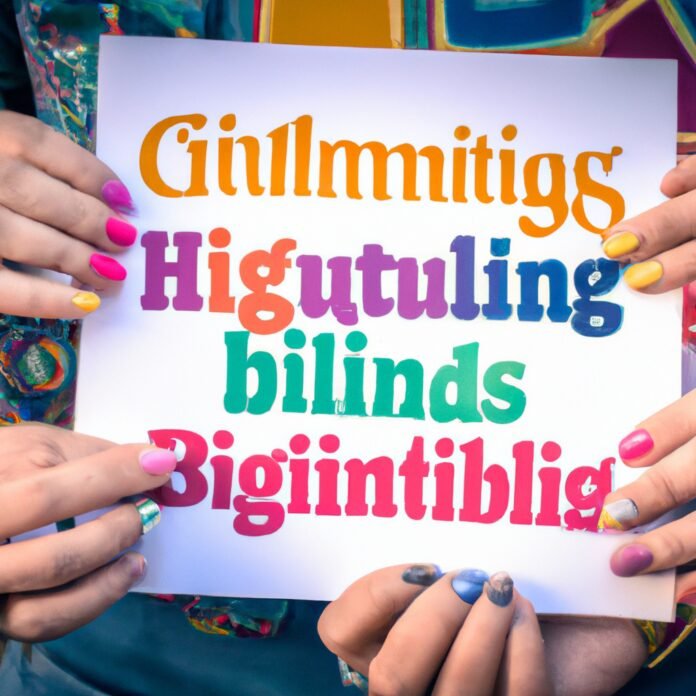As the world grows more interconnected with each passing day, it is easier than ever to experience different cultures from around the globe. Embracing multiculturalism gives us the opportunity to learn and appreciate the joy and diversity of living in a global society. This article will explore the benefits of embracing multiculturalism and provide tips on how to do it.
1. Understanding Multiculturalism
Multiculturalism refers to the presence and celebration of diverse cultures within a society. It is a concept that embraces the unique beliefs, practices, values and traditions of all peoples, irrespective of their geographical, racial, ethnic or social origins. It includes the recognition and respect of each individual’s cultural, religious, and cultural beliefs. It is about understanding and respecting the differences between peoples and recognizing the unique and valuable contributions that each can make to the wider community.
In order for people to live in harmony with one another, they need to understand and appreciate differences among cultures. This means being tolerant and respectful of each other’s lifestyles and values. People need to be open to the idea of diversity, and to find ways to bridge differences and build appreciation of these differences.
- Cultural Sensitivity – This refers to the ability to recognize and respect the cultural values of people who are different from the majority. It includes the willingness to understand and appreciate their customs, beliefs, and practices.
- Intercultural Communication – This is key to successful multicultural interactions. Effective intercultural communication requires a sensitivity to other cultures and an openness to learning their ways.
- Cultural Competency – This involves the understanding and acceptance of other cultures, and a knowledge of how different cultures view the world. This allows people to interact effectively with members of other cultures, recognize and appreciate differences, and promote understanding.
These three concepts are essential in helping people to understand the complexities of multiculturalism. When people can appreciate and appreciate the differences between individuals and cultures, it creates a much richer environment for all involved. In order to create a successful and harmonious multicultural society, everyone must be willing to embrace diversity and work towards understanding and acceptance of all cultures.
The concept of multiculturalism is increasingly important in modern society, and it is essential that people strive towards understanding and appreciating the richness of various cultures. This can help bring together individuals from different backgrounds and, in turn, promote the development of a more peaceful, prosperous, and unified society.

2. Navigating Through Diversity
Cultural Awareness in the Workplace
In today’s world, the workplace is becoming increasingly diverse and interconnected. It is more important than ever that we learn to navigate through different cultures and beliefs.
Learning to appreciate and respect other cultures can open up many opportunities for success. Here are some tips for fostering an environment of cultural awareness in the workplace:
- Acknowledge differences: Recognizing and understanding that the workplace comprises different cultures and backgrounds is a great way to start.
- Be mindful of language: We must learn to think before we speak. Certain words or phrases that sound harmless to us might have a different meaning or connotation in other cultures. Be aware of this and refrain from using language that could be perceived as offensive or derogatory.
- Respect customs: Different cultures have diverse customs and traditions. Respect the unique customs of various cultures and do not impose your beliefs onto people around you.
- Encourage open dialogue: Encourage conversations and dialogues between people of diverse backgrounds. Be open to learning about cultures and beliefs other than your own.
Learning about and understanding various cultures can help create a trusting and supportive environment in the workplace. Being culturally aware allows us to become more tolerant, understanding, and accepting of people from different backgrounds. It also yields better communication, creates a deeper level of respect, and makes everyone feel safe and comfortable.
It is essential to recognize the value of cultural diversity in the workplace. With enhanced cultural awareness, we are able to build stronger working relationships, which can lead to a productive and happier workplace in the long run.
3. Celebrating Cultural Richness
As a society, we are fortunate to have many different cultures represented around the globe. Each of these cultures brings with it an array of unique traditions that can enrich the lives of everyone affected by them. is a great way to show appreciation for the many differences that make us who we are.
- Start by exploring the festivals associated with each culture. Every culture has its own yearly or seasonal celebrations, filled with color and lively music. Attending these events is a fantastic way to experience the joy and grandeur that is emblematic of that particular culture.
- Take note of the traditional costumes of each culture. In many cases, the traditional costumes of a certain culture contain many little clues about that particular culture’s values, beliefs, and social hierarchies. Put on a costume and explore the intricate cultural messages encased within.
- Revel in the unique flavors of cuisines from around the world. Each culture has its own array of delicious recipes developed over many years. Learning how to make dishes from these cultures is a sure way to savor the culture itself.
- Display artwork that chronicles the history of some of the greatest cultures of old. Seeing artwork pieces from bygone eras can enable us to understand more about the past, allowing us to gain a better appreciation of our present.
- Try your hand at learning languages from cultures across the globe. Having an understanding of different languages is amazing means of gaining an insight into the culture from which it originated.
ensures that traditions and values are not soon forgotten. It is a reminder of how we can all unite in spite of our differences, understanding and appreciating each other’s unique way of life. So seek out the wealth of knowledge that comes with learning about the world’s cultures today, and enjoy the journey!
4. Embracing Our Interconnectedness
It’s easy to forget, as individual humans, that we are all connected in some way. Not only connected to our family, friends and everyone in the world, but also to the plants and animals who share the earth with us. We are all part of a vast and complex chain of life.
It’s not just the physical connections we should consider, but also our emotional and spiritual connections. We all have a common desire for freedom, justice, peace and a better future. Thinking this way can help us to develop a profound sense of empathy with others, and bridge the gap between ‘self’ and ‘other’.
In order to make the most of our interconnectedness, it’s important to recognize that everyone has different values, beliefs and ideas. This appreciation of diversity of opinion can help us to understand and respect our differences. It can help us to understand that our views are not absolute, and that others have the right to express opinions that are different from our own.
At the same time, we need to be aware of how our words and actions affect those around us. Our interactions with others can have a ripple effect, and have an impact on others in ways that may not be immediately apparent. We must remember that our decisions, no matter how small, can have a lasting impact on the lives of those around us.
When we embrace our interconnectedness, we are opening ourselves up to new experiences and perspectives. We can learn more from each other and create an open dialogue that benefits us all. By embracing this understanding, we can help to create a better future for our world.
By embracing multiculturalism, we can create a multi-cultural community of understanding and solidarity within our own societies, while fostering understanding and respect for people from a broad range of backgrounds and cultures. Let us be mindful of our differences, and open to the transforming power of multiculturalism that will shape our future.
